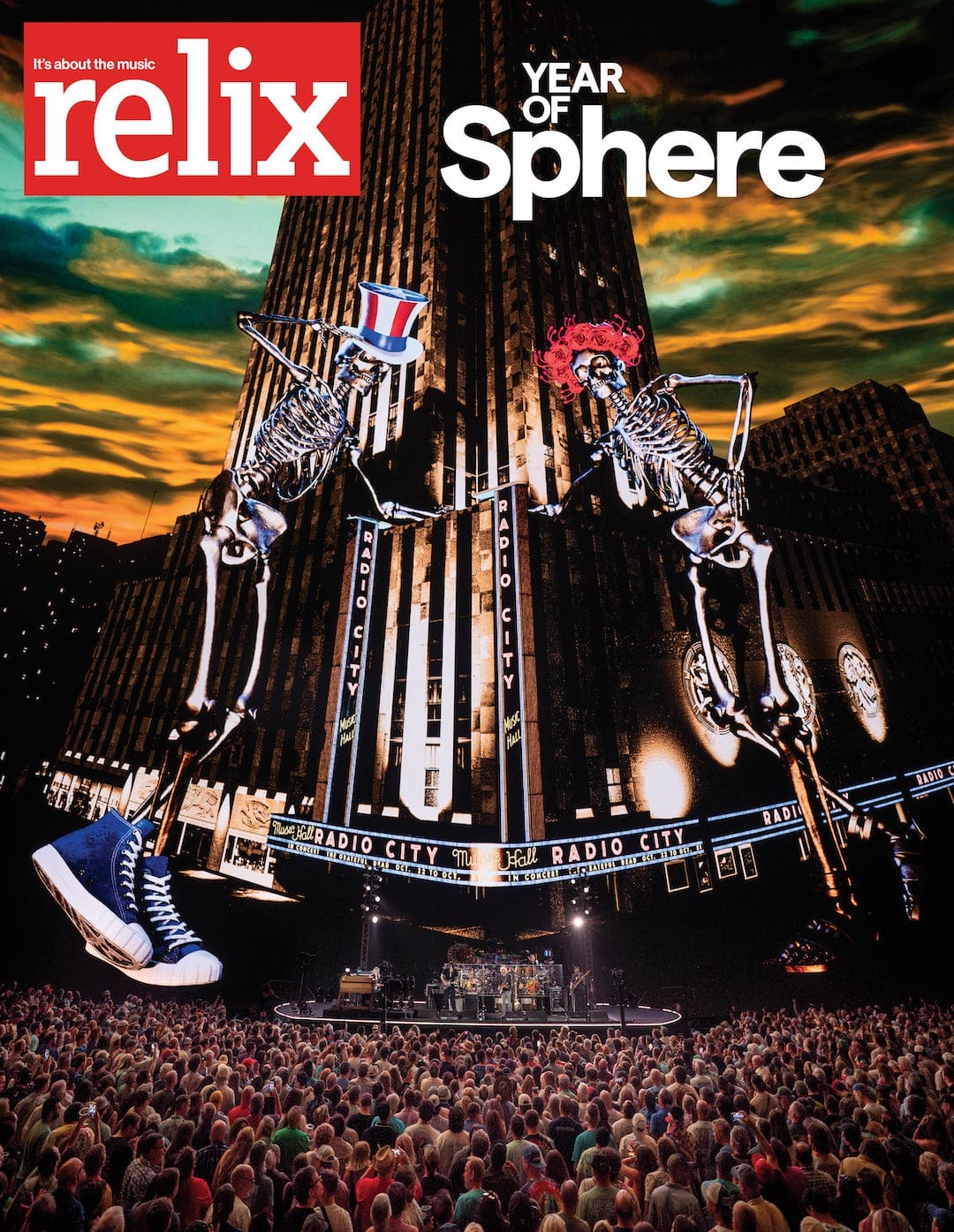Original Tripper: Os Mutantes’ Sergio Dias

With a decade’s worth of 50th anniversaries now upon us, the countercultural ‘60s continue to inspire a rising generation of would-be radicals – but when someone who was actually there gives voice to the issues of right now, it says a lot about what it means to remain committed to the cause.
“I don’t think that everybody has a responsibility to be political,” Sérgio Dias says. Back in the mid-‘60s, he co-founded the legendary Brazilian psych-rock group Os Mutantes with his older brother Arnaldo Baptista and singer Rita Lee. “But I believe that musicians are political beings because music is always revolutionary.”
For Dias, the revolution started in his native São Paulo in the late ‘60s. Brazil’s Tropicália movement – a freethinking, avant-garde reaction by the arts intelligentsia to the country’s military coup d’etat of 1964 – was in full flower, and Os Mutantes had allied themselves with the movement’s leading singer-activists Caetano Veloso and Gilberto Gil. When both were eventually imprisoned and exiled for their role as “agents provocateurs,” Dias had a front-row seat to the oppressive machinations of martial law.
To this day, he compares the ‘64 coup and its aftermath to the JFK assassination, and now that he’s a U.S. resident (of Las Vegas, strangely enough), his poignant observations of American life play out in all their swirling complexity on Os Mutantes’ ninth studio album. Fool Metal Jack, its title a satirical take on the Stanley Kubrick film Full Metal Jacket, is a reflection of Dias’ personality – irreverent, surreal, psychedelic and playful – but it’s also a send-up of protest music in general.
For each sharp portrayal of home foreclosures ( “The Dream Is Gone” ), idle groupthink ( “Ganja Man” ) and the carnage of war ( “Fool Metal Jack” ), there’s a well-crafted song that embraces elements of indie rock, art pop and acidlaced blues. It’s the reason why the original Mutantes were such favorites of Beck, David Byrne, The Flaming Lips and Kurt Cobain: They could be
controversial and way-out there, but their music was somehow always accessible.
“For this album, when we started, I didn’t have anything in mind in terms of a concept,” Dias reveals, “but I understood, early on, that it was all about America, and what I was seeing. The ideals of America, Thomas Jefferson and John Adams – how much did you guys work for this? It is such a sacred thing and it is something that has to be preserved and cherished. That’s why most of this album is in English, which is new for us. I wanted to reach as many people here as I could – to let them know what I’ve been feeling, being here.”
As frontman and lead guitarist, Dias does most of the heavy lifting on Fool Metal Jack. He’s also leading a much younger incarnation of Os Mutantes. With the exception of veteran drummer Dinho Leme (who plays on the album but as of press time won’t be joining the band on tour), all of the musicians were handpicked by Dias after a 2006 reunion tour, which garnered rave notices but broke apart under the weight of Arnaldo Baptista’s lingering problems with his drug-fueled past.
Indeed, the new “Into Limbo” was inspired by Baptista’s brush with death in the early ‘80s – it’s a sunny, Todd Rundgren-like song that artfully conceals how painful it was for Dias to write and record it. And even though this is just their second album together – and in fact, it’s only the second Mutantes album since the mid-‘70s – this version of the band plays like a road-tested, cohesive unit.
Fool Metal Jack has all the earmarks of Mutantes classics like Jardim Elétrico, the long-lost Tecnicolor and their self-titled 1968 debut. Dias is the creative link between them all and he still finds inspiration in unusual places – “Valse LSD” is based on an unexpected acid trip at a music festival in Yosemite, where “this girl came with a joint and said to me and my wife, ‘This is a very special one.’ We had one puff, and suddenly, I see all the trees just turn around like 360 degrees and turn to gold. And I said, ‘Hey, I’m tripping!’ And my wife said, ‘Me too!’”
But Dias also insists that Os Mutantes is an ever-shifting entity unto itself, with arms wide open to members past, present and future.
“Really, Mutantes has its doors open to anybody that ever stepped under its umbrella,” he says. “If my brother or Rita ever wanted to do something, I’m up to do it. I love Rita and I love all those guys, definitely. That’s the thing about Mutantes, and I keep saying this: Less than ten years ago, I had no idea that this music would come back into my life. But I’m always so proud and happy that we lived all these things together. To be able to keep doing it and to do it in America – it’s just beautiful, you know?”



















